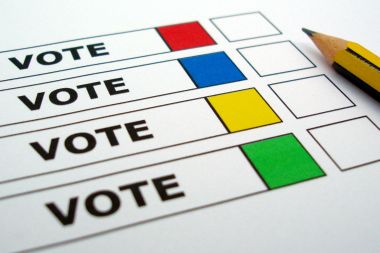On Election Day, millions of people will go to the polls and vote for either Republican candidate John McCain or Democratic candidate Barack Obama. And they will do so for the wrong reasons. Instead of voting for the candidate on the ballot who would best represent their views, they will vote for McCain or Obama because they fear that if they don’t vote for one of them, they will help the wrong guy win. They will vote based not on their beliefs, but based on their fears. This is both unfortunate and unnecessary because in spite of its numerous fundamental flaws, the American political system provides voters with an outlet by which to express their preferences about policies and political philosophies. Unfortunately, many of us will waste this precious opportunity on Election Day by voting for a candidate who do not represent our views. Of course, if Obama or McCain do represent your views better than any of the other candidates, then you should vote for one of them. I fear, though, that this is not the case for most voters. American voters deserve better. One of the great things about Presidential elections is that they attract candidates from across the ideological spectrum. There are many, many alternatives, and regardless of your political persuasion there is likely to be a candidate out there for you. In the internet age, it takes minimal effort to find out who is running and what they stand for. You might find that you most closely agree with Cynthia McKinney. Or Bob Barr. Or Ralph Nader. Or Chuck Baldwin. Or Lobsterman. Or even John McCain or Barack Obama. Regardless, you should vote for the candidate who most closely represents what you believe in without worrying about whether your non-traditional vote will help “the wrong guy” win. In addition, looking at standings in national polls is the wrong way to decide because of the Electoral College. What matters is the race in your state of residence and people’s estimates of what will happen there. In my state, Tennessee, the prediction markets at www.intrade.com are predicting an 80-90% chance that McCain will win Tennessee, where I live. They are making a similar prediction about Obama’s chances of winning California. To take just two examples, it is virtually certain that McCain will carry Tennessee and Obama will carry California. For that matter, McCain is a virtual lock to take the entire South while Obama is a virtual lock to take most of the Northeast and the West Coast. When you vote, you can safely treat these outcomes as foregone conclusions. You can rest comfortably with the knowledge that your vote will not have any bearing on the final choice. The probability that your vote will affect the outcome of the Presidential election is, for all intents and purposes, zero. For your vote to be decisive, the election has to be decided by fewer electoral votes than your state represents, and your state then has to be decided by exactly one vote. Even in Florida in 2000, a single vote would not have mattered. If I remember correctly, George W. Bush won the state by 166 votes. An additional vote for Al Gore would have meant that Bush won by 165 votes. An additional vote for Bush would have meant that Bush won by 167 votes. An additional vote for Ralph Nader or Patrick Buchanan or any of the other candidates would have meant that Bush won by 166 votes. When we go into the polling booth, we should take others’ votes as given and then vote our consciences, knowing full well that our individual votes will not make a difference with respect to the outcome of the election. Paradoxically, this is extremely liberating because it removes the strictures of choice in a two-party system, opens up a world of possibilities, and elevates the level of political discussion.
